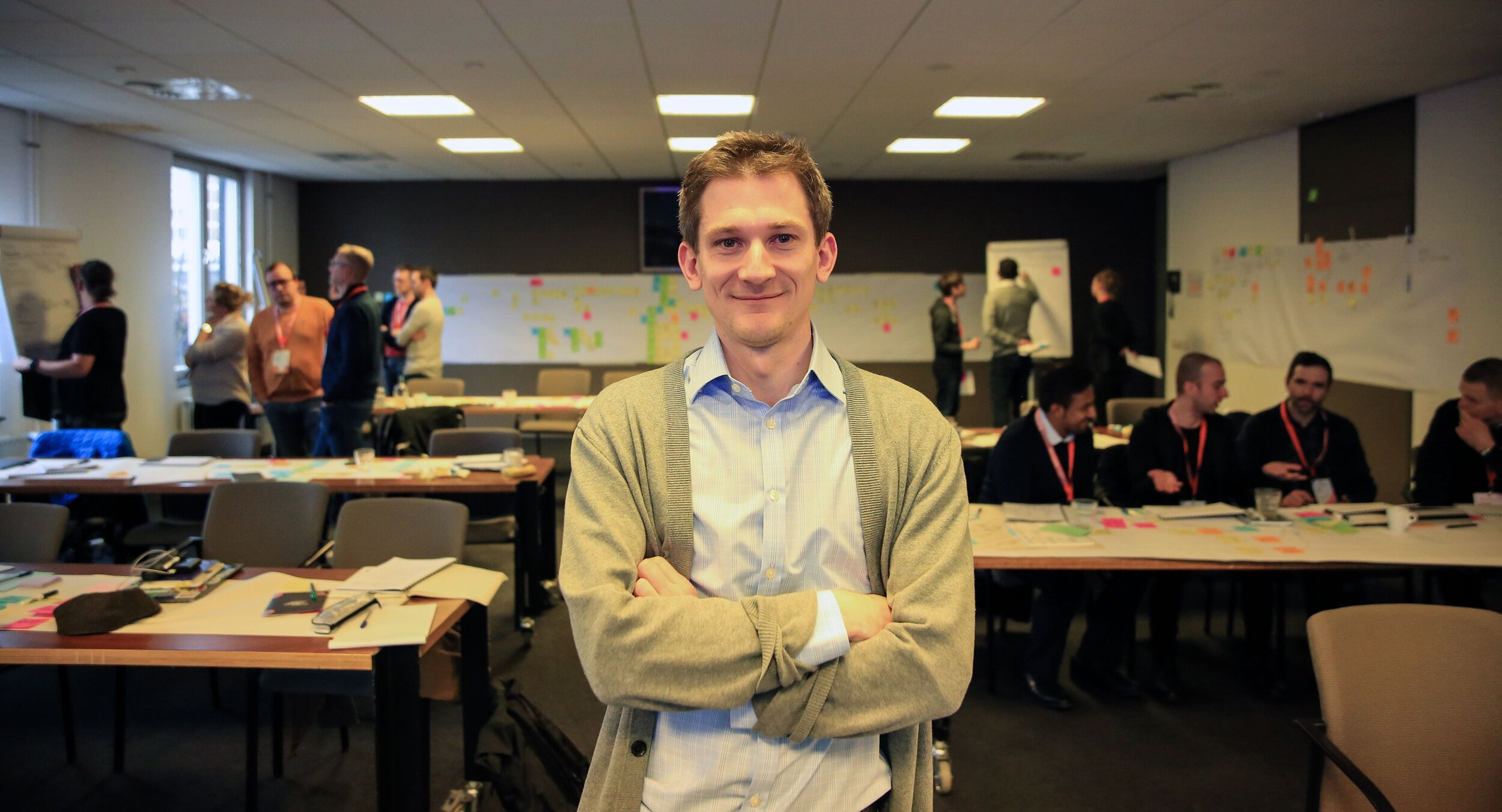
Standard & Bespoke Training
Each training module on this page is 3 hours unless stated otherwise. Modules can be purchased individually although are usually combined into 2 - 4 day workshops, often with an additional open space or consulting session at the end to apply the concepts to your business.
All modules are taught remotely using Miro and Zoom or Teams or in-person.
My designing online workshops with Miro article gives an example of my online training. I've also published a free remote DDD modelling toolkit for Miro .
I also provide bespoke and advanced training modules based on clients' needs.



Leadership Training for Biz, Product, and Technology Leaders
These workshops are for product and technology leaders like CTOs, CPOs, VP Engineering, VP Product, Directors, and Principals.
Identifying Independent Value Streams (2-3 days)
This workshop is for business, product, and technology leaders who want to align business strategy, organization design, and software architecture to achieve faster flow and better products. The workshop provides concepts and techniques from bodies of knowledge like Team Topologies, Domain-Driven Design, Wardley Mapping, and Product Management.
DDD Training for Engineers and Architects
These workshops are for software engineers and architects who are new to Domain-Driven Design and want to learn the fundamental concepts.
Strategic Module 1: Identifying Domain Boundaries
Attendees will learn how to use Event Storming to map out a business, identify different business areas (known as domains or subdomains), and how to organize teams and software with domains.
Strategic Module 2: Core Domains + Context Maps
Attendees will learn how to view the business as a portfolio and identify the domains which are most complex and valuable to the business strategy (aka Core Domains), using a technique called Core Domain Charts.
Strategic Module 3: Modelling Business Processes
Attendees will learn how to evaluate and improve business processes and user journeys using process modelling Event Storming, and how to design end-to-end flows that cross multiple subdomains with Domain Message Flow Modelling.
Strategic Module 4: Applying Strategic DDD
Attendees will assess and evolve pre-prepared scenarios and have an opportunity to discuss how they can put these ideas into practice in their real work after the workshop.
Tactical Module 1: Design-Level EventStorming
Attendees will learn how to structure code by decoupling domain logic and infrastructure, and using aggregates to represent state machines in the domain. Attendees will collaboratively model using design-level EventStorming to design the code.
Tactical Module 2: Hands-on Tactical Modelling
Attendees will practice hands-on tactical modelling. They will form pairs and work on coding exercises. Each exercise is designed to teach specific coding patterns and there is a group review and discussion after each exercise.
Event Storming Training for Everybody (Biz + Tech)
These workshops are for anybody designing and building products including software engineers, product managers, testers, and UX designers.
Event Storming Module 1: Intro To Big-picture EventStorming
This is an 8-hour session run as either 1 x 8 hour session or 2 x 4 hour sessions. Attendees will learn the popular technique of Big Picture EventStorming for collaboratively modelling domains and making big discoveries.
Post-workshop Extra Sessions
Open Space Session
Following completion of standard training module, open space sessions can be added which give attendees a chance to request more detailed information on certain topics, or learn about concepts outside of the course material.
Consulting Session
After a series of training modules it’s often a good time for attendees to apply what they’ve learned to their day-to-day work. A follow-up consulting session allows attendees to bring real challenges they are facing at work and apply concepts such as Event Storming and Domain Message Flow Modelling, with guidance and facilitation.
Follow-up Coaching
Coaching is a chance to get continued support in applying what was learned during the workshops to real work challenges. Regular coaching can vary from a couple of hours a month to half a dey per-week working with individuals or whole teams.






